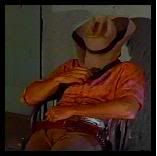|
|
Post by Nittanylizard on Sept 15, 2007 18:22:05 GMT -5
Did you ever notice how many of the fics out there are plagued with the same technical problems that would be so easy to fix? Since nobody makes errors because they want to, how about a thread for all the little rules, hints, and guidelines that make a piece easier to read?
Here's a list of the subjects we've touched on. Just scroll down the thread for the subjects that are in bold:
- Quotation Marks
- conjunctions, phrases, and other confusing words
- Using "said" and "asked"
- Once again . . . with less FEELING
- Simultaneous Actions
I'll start, using examples instead of lengthy (i.e. boring) explanations.
Quotation Marks
Note the punctuation (bolded) and capitalization (underlined):
1. "Where are you going?" he asked.
2. Where are you going?" He leaned against the wall and sighed. --> He leaned and sighed after he finished talking; two separate events.
1. "Let's go to my house," she said.
2. "Let's go to my house." She waited for Soda to reply. --> She spoke, and then waited for Soda to say something.
1. "Well," Ponyboy said, "what are we going to do next?" --> His words are all one sentence, separated by a dialogue tag. Note that in this case, you do not capitalize the first word in quotes after the dialogue tag.
2. "Well," Ponyboy said. "What are we going to do next?" --> Ponyboy speaks, there is a slight pause, and then he starts a new sentence. Note that in this case, you do capitalize the word in quotes after the dialogue tag.
1. "Wow." Ponyboy pulled a cigarette out of his pocket. "What are you so mad about?" --> Three separate things going on here, one after the next: speak, action, speak
2. "Wow," Ponyboy said, pulling a cigarette out of his pocket. "What are you so mad about?" --> Ponyboy first speaks while simultaneously pulling a cigarette out of his pocket. Then, he says something else. Three things still going on, but it is speak + action, speak.
3. "Wow," Ponyboy said, and pulled a cigarette out of his pocket. "What are you so mad about?" --> Like 2, this one has a dialogue tag (said Ponyboy), but he pulls the cigarette out after speaking. speak, action, speak
4. "Wow," Ponyboy said, pulling a cigarette out of his pocket, "what are you so mad about?" --> Just like #2, but his words are all one sentence. When you imagine him speaking, you shouldn't hear much of a pause.
I'll add in more quote rules as I think of them.
Go ahead and add more, and/or ask about anything you're not sure of. Also, if there's something you want to know more about or think you're doing it wrong, bring it up, and hopefully somebody will have an answer.
|
|
Des
Teeny Bopper
   Trespassers will be shot. Survivors will be shot again.
Trespassers will be shot. Survivors will be shot again.
Posts: 107
|
Post by Des on Sept 16, 2007 7:44:39 GMT -5
-bows low to Liz-
THANK YOU! I am totally clueless when it comes to grammer and capitaization!
|
|
|
|
Post by BlindedxxFalcon on Sept 16, 2007 10:59:37 GMT -5
Ditto!
|
|
|
|
Post by zickachik73 on Sept 18, 2007 11:18:11 GMT -5
I'm pretty sure I love this post and it makes me happy. When I beta, this is a lot of what I fix. Thanks, Liz. Much appreciated!
|
|
|
|
Post by anotherillusion on Sept 18, 2007 13:48:38 GMT -5
It took me so long to learn all these grammar rules and since I have I have become obsessed with grammar.
I could have used with this thread a few years ago lol.
Another Illusion
|
|
|
|
Post by Nittanylizard on Sept 25, 2007 9:20:42 GMT -5
Okay, I've got another one here - conjunctions, phrases, and other confusing words. Here are some of the ones that writers seem to confuse most often:
their – possessive, as in “This is their house.”
they’re – short for they are – “They’re all coming with us.”
there - place - "We should all move over there."
were – “All of us were going to go.”
we’re – short for we are; “We’re all going to go.”
where – place; “Where is everybody going?”
your – possession; “Is this your bike?”
you’re – short for you are; “You’re going for a bike ride?”
lose – opposite of win, also opposite of find; “Did you lose the poker game?” “I was careful to not lose my notebook.”
loose – not tight; “The handle on this switchblade is kind of loose.”
could of - this is what it sounds like out loud, but in writing, it is could've. If you don't write it as a conjunction, it reads as "could have": "I could've gone with them if I didn't have so much homework."
its - possessive (I wonder where its mother is?)
it's - contraction of it is (Where do you think it's going?)
Hints:
- If you're not sure whether you should be using an apostrophe in a word, try breaking it up. For example, if you want to say "They are leaving", then you need the apostrophe (they're).
- Apostrophes within words are used for two things - to show possession and to combine two words into one (contractions). If you've used an apostrophe, make sure it meets one of those criteria.
Any I missed? Add them in, or ask me to add them if you aren't sure how they work!
|
|
|
|
Post by Nittanylizard on Sept 25, 2007 9:33:58 GMT -5
I'm pasting these right over from my profile page so I can delete them there. Here is one that is more of a hint than a rule. In other words, you might not be doing something wrong, but if it's done in excess it takes away from the writing. Using “said” and "asked"Just something to think about – don’t feel you need to replace the words said or asked with something like snarled, grumbled, snapped, shouted, screamed, exclaimed, scoffed, replied, hissed, etc. While these words have their place, it doesn't take too many times to overuse them. Said and asked are invisible words. As a reader, you skim right over them and focus on the dialogue. If you replace them too often, you can take away from the dialogue rather than adding to it. At the same time, you also don't want to have a running string of dialogue where every quote ends with "he said". Often, if it's clear who is speaking, you don't even need a tag. Where possible, try using descriptions of action within the paragraph to convey how the words are being spoken, rather than dialogue tags. Example: “I don’t need your help,” Steve snarled at Ponyboy. vs. Steve clenched his jaw and turned on Ponyboy. “I don’t need your help.” You get the same picture, but in the first example, the word “snarled” can be distracting. I'm going to note at this point that if you go back and look at some of my older fics, you'll see that I was still at a point where I wasn't aware of many of these little hints and suggestions that can strengthen the writing. That is how writing works - it is a progression, and every time you think you've finally got it right, something else pops up that makes you smack yourself in the head and say, "Wow, that never occurred to me." And then, you go back and do it better the next time  . Liz |
|
|
|
Post by Tensleep on Sept 26, 2007 20:27:52 GMT -5
Wow, that's a lot of info, Liz. I can see you wanting to get that off your profile page. I think I got a few of them, but I have a simple solution to keeping all that in check:
Everything Liz said = Laura's job 
I know, I'm horrible. I do try to get this stuff, honest. Sometimes the fingers just don't care to wait up, though.
Great post, very helpful!
|
|
|
|
Post by Nittanylizard on Oct 16, 2007 12:22:38 GMT -5
Once again...with less FEELING
I admit it - I used to do this all the time, and it still slips out sometimes in that first draft. I just corrected it again yesterday in one of my original stories. It isn't necessarily one of those things that is "wrong" if you do it one way, but it makes a difference if you do it the other way. Okay, the best way I can explain it is by example:
Example 1: Ponyboy felt himself get angry.
Example 2: Ponyboy got angry.
Note how much closer to the character you feel with Example 2. When your goal is to get the reader into the head of the character, you want to do everything you can to get them as close as possible. This, then, is one of those things that you will want to watch for.
You'll find examples of it everywhere, and once you recognize it, I'm warning you, it will drive you crazy when you see it -
I felt tears well up in my eyes.
(Tears welled up in my eyes)
I felt my stomach clench.
(My stomach clenched.)
I felt like I wanted to hit him.
(I wanted to hit him.)
I felt myself get tense.
(I got tense. OR I tensed up.)
So, everyone go make yourself crazy reading your own fics. Because you know you've got way too much feeling in them somewhere. ;D
|
|
|
|
Post by Keira on Oct 16, 2007 14:51:54 GMT -5
You're right, I think that'll drive me crazy from now on. Good going, Liz  lol, jk. It all goes back to the saying, "Less is more." When you get too wordy, it can take away from the moment for sure. I'm not entirely sure I've ever really noticed those differences before, but I can guarantee I won't miss them from now on. lol, jk. It all goes back to the saying, "Less is more." When you get too wordy, it can take away from the moment for sure. I'm not entirely sure I've ever really noticed those differences before, but I can guarantee I won't miss them from now on.
|
|
|
|
Post by Nittanylizard on Apr 14, 2008 6:51:48 GMT -5
Simultaneous Actions
Here's another common error that often makes it through first drafts. It's where you use -ing words to describe action, but things are happening at the same time instead of in sequence.
I'll use a really over-the-top example where it'll jump out at you.
ex: Running down the street, Steve collapsed onto the grass.
It's pretty clear that Steve can't be running down the street and collapsing onto the grass at the same time, but that's how it's written. It's a very simple thing to correct, too - just add a word somewhere to indicate that these actions are happening one after the other:
1. After running down the street, Steve collapsed onto the grass.
2. Steve ran down the street and then collapsed onto the grass.
Normally this kind of error is much more subtle than that example.
ex. Smiling at Sodapop, Ponyboy went into the house to make a phone call.
Were they both outside? If so, Ponyboy isn't still be smiling at Sodapop after he walks into the house unless they're walking in together. If that is the case, it should be made clear in the sentence.
Or was Sodapop already in the house? Because if he was, then the sentence is confusing because it's out of order - Ponyboy went into the house before he smiled at Soda.
I usually just watch for any -ing verbs in my first round of editing to make sure I haven't defied any laws of physics or disrupted the space/time continuum ;D.
|
|
|
|
Post by Keira on Apr 14, 2008 23:37:43 GMT -5
Thanks for those examples, Liz. I had a nerve wracking experience trying to teach my English class a little bit about honing writing skills this morning (no idea what my grade is yet, so I don't know how well I did, lol) and it's safe to say that you put things much more simply than I am able to.
|
|
texaskid
Middle Classer
  I'd put a pic here but I'm too lazy.
I'd put a pic here but I'm too lazy.
Posts: 59
|
Post by texaskid on Apr 19, 2008 8:17:30 GMT -5
Ok thanks for all the examples, it really helps,
a few more on the subject of missed used words
it's- the contraction of it is, as in "It's their ball"
its- possessive
As for these two and any other contraction that also has a non-contraction (also your and you're) try and see if you can de-contract them. If you can then use the contraction if you can and it sounds odd then you don't need the contraction, but the other word.
well I can't think of any of those right now, but here's something I've done a lot.
Usually the words "And" "But" "Or" "nor" all need a comma before them. The word "Because" never needs a comma.
EX: 'He went to the store, and the dry cleaners'
'He danced in the rain, but never in the snow'
'She went to the mall, or the farm'
'Neither rain, nor snow, nor sleet will stop us'
'He fell because his shoes were untied.'
when I think of more I'll let you know
|
|
|
|
Post by Keira on Apr 19, 2008 10:51:19 GMT -5
Another use of commas (a negative use) is know as comma splicing, or connecting two sentences by a comma. Most teachers and editors encourage you to find another way to connect your two thoughts rather than using commas over excessively. Using them is normal, but sometimes people get comma-happy and use them in nearly every sentence which does not give a story -- or anything for that matter -- good rhythm or flow.
I would know, trust me lol. I'm both comma-happy and hyphen-happy.
For example:
"My phone wouldn't stop ringing, but I didn't pick it up. I knew who it was, and I didn't like talking to her. I wish she would take the hint and leave me alone."
Can be also said:
"I was going to go crazy if she didn't stop calling me. My phone was ringing like a kid doing the potty dance; I wasn't going to pick it up."
Comma splicing isn't necessarily the easy way out, and often times unavoidable, but it's more pleasing to the eye and ear when it's avoided.
|
|
|
|
Post by sharpshooter on Apr 19, 2008 19:47:37 GMT -5
Thanks for the great hints! Oh, and Keira, nice example. xD
|
|







 .
.


 lol, jk. It all goes back to the saying, "Less is more." When you get too wordy, it can take away from the moment for sure. I'm not entirely sure I've ever really noticed those differences before, but I can guarantee I won't miss them from now on.
lol, jk. It all goes back to the saying, "Less is more." When you get too wordy, it can take away from the moment for sure. I'm not entirely sure I've ever really noticed those differences before, but I can guarantee I won't miss them from now on. 